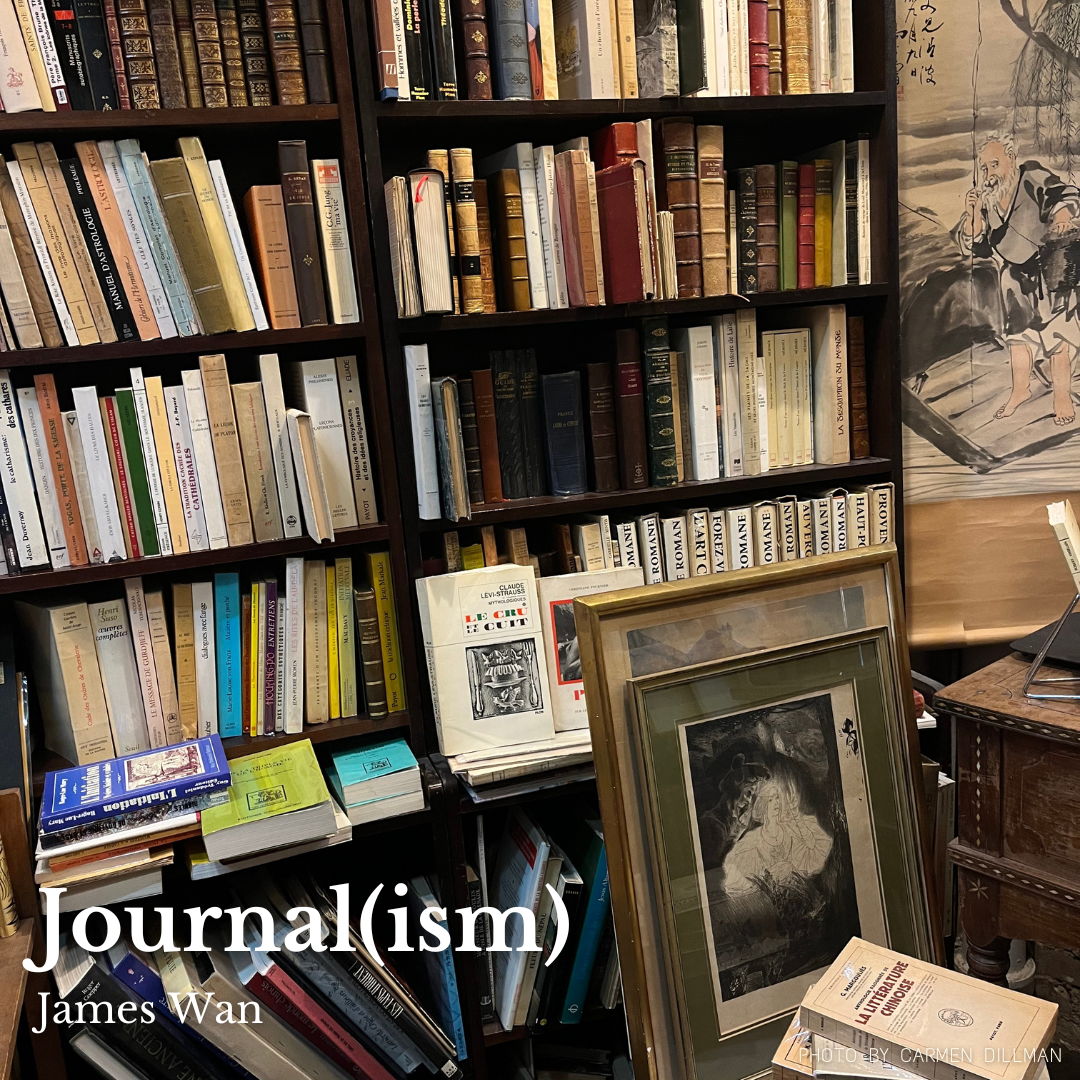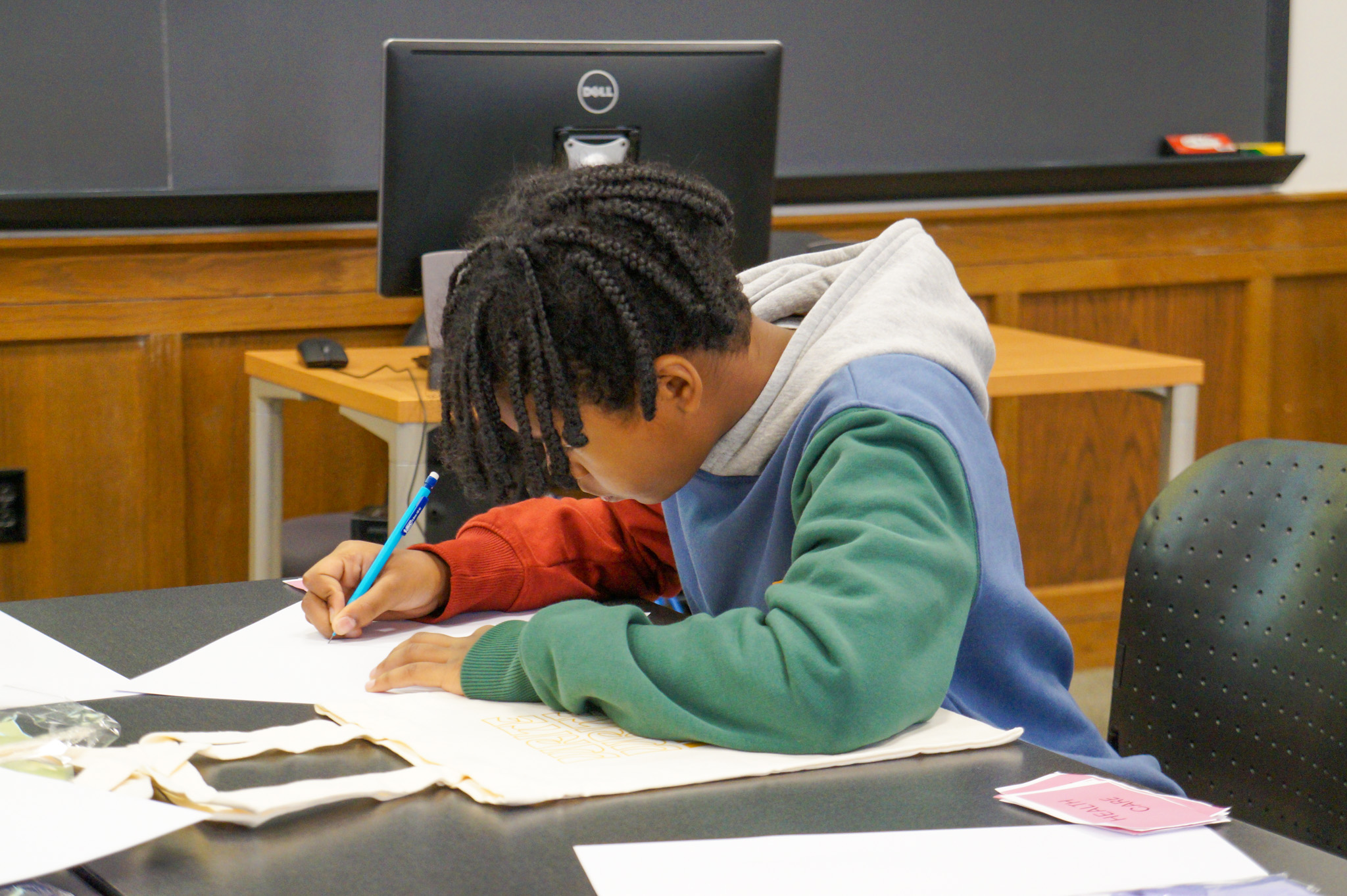In February of 2024, we released our fifth Open Call: Using art, letters, stories, and poetry, tell us: how might we create healthy spaces and places for all? The following is a story submission we received from this open call.
“My submission describes the healthy place that I discovered: my daily journal. Since June 2021, I have been putting daily entries into my journal, so I am now over 1000 days in, and I can strongly attest to the benefits of journaling. As much as I love my family and friends, I have found it tremendously helpful to discuss important topics with myself. Though it wasn’t my original intention, this journal has become a foundational pillar of emotional support for me. I would really love to share my story and spread this joy to other people who might pick up a hobby they never thought they would.”
James Wan
“Journal(ism)”
In journalism courses, I have learned that simple is better. To write effectively, a journalist must lead with an inverted pyramid, giving readers the most important information right away; they must cut down on the unnecessary flourishes to keep their writing cut and dry. As someone who struggled with writing meaningful fiction, I was partially drawn to journalism for its style.
After I had chosen journalism as my interest, my mom sought out opportunities for me, whether I liked it or not. In June 2021, she found a Zoom seminar with a seasoned Philadelphia journalist. I begrudgingly agreed to attend it, bracing for whatever might happen while we watched the Zoom meeting together.
She took some messy notes. She encouraged me to turn on my camera, which I was averse to. She pressured me to send an email to the organizer of the seminar to ask if there were any internship opportunities in the future. (I had just finished eighth grade, and I never received a reply on that topic.) She especially zeroed in on a small piece of advice from the journalist: start a journal. He said that it would help to improve writing skills.
At the time, I wasn’t so sure that a journal would help me. Years ago, when I was in elementary school, I tried to start a daily journal but hadn’t kept up with it beyond two days. Despite my uncertainty, I decided to start writing on Google Docs.
As the summer passed by, my daily entries consisted of rather mundane summaries of what I had done each day; I hardly injected life into what I wrote. I managed to stay consistent because of a nightly reminder to do my journal entry, but that ultimately made it feel like a chore. After I came back to school in September, my entries shrunk in length, and the whole ordeal hardly felt rewarding. But I persisted.
I began to realize the value of my journal when my mom gave me a 40-minute-long lecture one October night, driving me to write my longest entry up to that point. As I aptly acknowledged at the time, I was “fueled on spite” and ranted for nearly two pages. In response to my mom badgering me to study for the SAT, I planned to use my 500 SAT vocabulary flashcards and write a sentence about my mom each day.
However, I am not one to hold a grudge. I made the sentences about her for a few weeks, though I had already lost any animosity toward her by the next morning. More remarkably, I actually went through all 500 words. And most importantly, I made commentary almost too convenient to include—in reference to an earlier dispute with my mom, I wrote, “I wish I were chronicling my experiences then.”
Over time, I understood more about the significance of my journal. It not only preserved the past but also served as a vessel in which I could pour my opinions, my dreams, my fears. Realizing my eyes would be the only judge, I gradually became more comfortable breaching uncomfortable topics. Like a journalist, I was steadfast on covering a beat. My feelings of anxiety, anger, and inadequacy—they all found an unglamorous home on my laptop.
Most days, I found myself trying to preserve small pieces of the present for the future. But every once in a while, I dumped a spontaneous heap of words into one entry. Without having to think about the exact style, my fingers would fly in a flurry, faster than I had ever written before. Not having to carefully craft every word, I found myself loving this stream of consciousness style. I left my future self an unrestrained, unfiltered artifact.
I reflected on how I went through 2021, highlighting the challenges I faced that year as I returned to in-person schooling. In another entry, I expressed my complex feelings about dropping orchestra from my schedule for the following school year. Later, I explained the thrill of going on fun school trips and the agonizing disappointment of getting COVID right at the end of the school year. Compared to what could be going on in other people’s lives, these stories felt plain, boring, and not newsworthy—but that didn’t matter. My experiences deserved to be news to someone, even if it was just me.
Maybe I misinterpreted what the journalist meant when he said to start journaling. Maybe he meant that I should keenly gather information from the world around me, synthesizing it into cold, hard news. Maybe he meant that I should practice writing the inverted pyramid and the lede and the nut graf.
But does it matter?
When I had first started my journal, I imagined that it would help me write with the dignity and grace that literary greats possessed. I thought that beautiful, refined words would effortlessly blossom from my fingertips. In reality, I found my writing to be at its most intense and most passionate when I let loose.
I found a safe space within a safe space. Writing was my go-to, my fallback. Yet I often encountered some of my greatest obstacles while writing, whether it was fiction or journalism. I was fearful of how my writing skills and my sense of self would be scrutinized by others, even though there had never truly been a reason to be scared. With a journal, the only thing I had to be afraid of was my own searing, editorial judgment—and I learned to give myself a break. Perhaps everyone could find that security by confiding in themselves.
My mom has always appreciated my writing and encouraged me to share it more. Shy and anxious, I have often been too reserved to announce when I write something new. But if I can break the news on anything, it’s this.
Follow Us On Social Media!
Instagram: @light4ph
Twitter: @light4ph
Facebook: @LIGHT – Leaders Igniting Generational Healing and Transformation
Youtube: @light4ph



